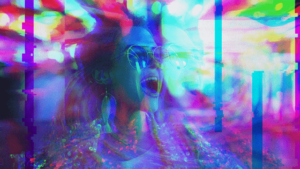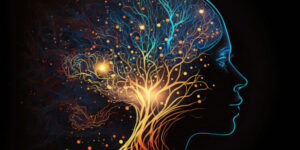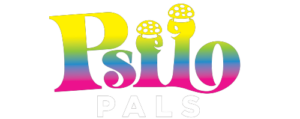Notable Elements
Psilocybin Basics: Psilocybin is a natural psychedelic compound affecting serotonin receptors, altering thoughts and emotions.
Therapeutic Potential: Psilocybin therapy aids depression, anxiety, and substance disorders through psychedelic experiences.
Experience Variety: Psilocybin induces perception shifts, mood changes, and creativity, shaped by dosage and environment.
Legal Considerations: Psilocybin’s legality varies globally; professional guidance and legal compliance are crucial.
Brain, Body, and Soul: Psilocybin impacts emotions, cognition, and behavior, with individualized effects on the “soul.”
Mushroom Variations: Different mushrooms yield diverse effects due to compound variations and ratios.
Abuse Risks: Ingesting psilocybin carries risks, leading to physical harm, aggression, and emergencies.
Medicinal Use: Psilocybin helps treat depression, anxiety, PTSD, and addiction through therapy.
Supervised Approach: Only use psilocybin under professional supervision, with proper dosage, preparation, and integration. Further research is ongoing.
Do you feel trippy after taking psilocybin?
Psilocybin is a naturally occurring psychedelic compound found in more than 200 species of fungi, with the most potent being members of the Psilocybe genus, such as Psilocybe azurescens, Psilocybe semilanceata, and Psilocybe cyanescens. Psilocybin converts into psilocin, its active form, in the body.
Psilocybin can alter thoughts, perceptions, and emotions, similar to other compounds like LSD. It primarily interacts with serotonin receptors in the brain, particularly the 5-HT2A receptor. The effects of psilocybin can vary depending on dosage, set and setting, and personal susceptibility.
Research has shown that psilocybin has potential therapeutic applications. Psilocybin therapy, which involves utilizing the psychedelic journey to address emotional obstacles and long-term problems, aims to expedite the therapeutic process. Preliminary studies have suggested that psilocybin therapy may benefit in treating conditions such as depression, anxiety, and substance use disorders.

What is psilocybin experience?
A psilocybin experience refers to the subjective effects and sensations that occur when consuming psilocybin-containing mushrooms, also known as magic mushrooms. Psilocybin is a naturally occurring psychoactive compound that acts as a serotonin receptor agonist in the brain.
During a psilocybin experience, individuals may experience a range of effects. These can include alterations in perception, changes in mood, enhanced introspection, and heightened creativity. Psilocybin can also induce visual and auditory hallucinations, synesthesia (blending of senses), and a distorted sense of time.
The nature of a psilocybin experience can be highly individual and influenced by factors such as dosage, set (mental state), and setting (environment). Some individuals may describe their psilocybin experience as spiritual or mystical, with a sense of connectedness to the universe or transcendence of the self. Others may report euphoria, enhanced empathy, or increased introspection and self-reflection.
It is important to note that the effects of a psilocybin experience can vary and may not always be positive. While many individuals report transformative and positive experiences, some may encounter challenging moments during the trip. These experiences, known as “bad trips,” are marked by anxiety, fear, or paranoia.
Research has shown that psilocybin experiences can have profound and long-lasting effects on mental health and well-being. Studies have suggested that psilocybin may have potential therapeutic benefits for conditions, such as depression, anxiety, and addiction. These effects may be related to psilocybin’s ability to promote neuroplasticity and enhance emotional processing.
Also Read : Magic Mushrooms for Mental Health: Exploring the Possibilities
Legality
It is vital to note that psilocybin is classified as a Schedule I substance in the United States, indicating a high potential for abuse and no recognized medical use at the federal level. Legal regulations surrounding psilocybin vary across countries and jurisdictions.
It is worth mentioning that using psilocybin-containing mushrooms is generally illegal in many countries and should not be taken recreationally or without proper guidance and supervision. If you use psilocybin, seek professional guidance and follow legal and ethical guidelines.
What are the effects on the brain, body, and soul?
Psilocybin, the active compound found in certain mushroom species, has been studied for its effects on the brain, body, and subjective experiences. According to research, it can cause emotional, cognitive, and behavioral changes.
- Emotional shifts. Psilocybin’s therapeutic potential for mental health conditions may be due to its ability to alter emotional states, reducing negative and boosting positive mood.
- Cognitive shifts. Psilocybin can influence cognitive functions such as perception, self-awareness, and time perception. Studies have shown that psilocybin therapy can induce a non-ordinary state of consciousness characterized by changes in emotional state and perception. Furthermore, it is associated with increased cognitive flexibility.
- Behavioral shifts. Research suggests that psilocybin can enhance openness, creativity, and feeling of connection, while also being linked to changes in behavioral patterns and attitudes. These behavioral shifts may contribute to the potential therapeutic effects of psilocybin in promoting personal growth and positive behavioral changes.
The experiences and interpretations of psilocybin’s effects on the subjective aspects, often stated as the “soul,” are highly individual.
The research on psilocybin is still ongoing, and further studies are needed to fully understand its effects on the brain, body, and subjective experiences.
Do effects vary for all different types of psilopals?
The effects of psilocybin can indeed vary among different types of psilocybin mushrooms. Psilocybin mushrooms contain not only psilocybin but also other compounds, such as psilocin and baeocystin, which interact with serotonin receptors in the brain. These different compounds and their varying ratios in different mushroom species may contribute to differences in the effects experienced.
Additionally, different varieties or strains of psilocybin mushrooms may have unique characteristics. The most common type of psychedelic mushroom, Psilocybe cubensis, is often called the “Golden Teacher” and has universal effects. Other species may also have distinct properties and effects.
While there may be general similarities in the effects of psilocybin across different species, individual experiences can still vary due to numerous factors such as dosage, set and setting, and personal susceptibility. More scientific studies are needed to understand the variations among varieties.
What is the risk associated with potential abuse of psilocybin?
Psilocybin or magic mushrooms can have potential risks when ingested. The risks may include placing oneself or others at risk of physical harm, being violent or physically aggressive with themselves or others, and seeking emergency medical help or hospitalization.
Furthermore, psilocybin is classified as a Schedule I substance, which means it is prohibited and has a high potential for abuse, a lack of recognized safety under medical supervision, and no established medicinal use in the United States at the moment.
Magic mushroom is currently being researched for its potential therapeutic use. While the results are promising, it is crucial to only use them under the supervision of a licensed medical and mental health professional in a clinical environment.
Medicinal or Therapeutic Usage of Psilocybin or Magic Mushrooms
Psilocybin has been explored for its potential medicinal and therapeutic use. Research suggests that psilocybin may have beneficial effects on mental health conditions such as depression, anxiety, post-traumatic stress disorder (PTSD), and addiction.
Studies have shown that psilocybin-assisted therapy can lead to significant improvements in depressive symptoms and provide long-term relief for individuals with treatment-resistant depression. It has also demonstrated the potential to reduce anxiety and existential distress in patients with end-of-life anxiety. Additionally, psilocybin-assisted therapy has shown promise in treating substance use disorders, specifically in reducing cravings and promoting abstinence.

In summary
Psilocybin has both immediate and long-term effects. Psychological effects might be significant depending on the severity of any mental disorder, but the risk is not significant.
It is important to note that the therapeutic use of psilocybin should only be conducted under professional supervision in controlled settings. Proper dosage, preparation, and integration are crucial components of psilocybin therapy to maximize benefits and minimize risks. More research is needed to fully understand the potential benefits and risks associated with psilocybin use in therapeutic contexts.

Hi! I’m Jacob Hawthorne, a passionate medical student dedicated to exploring the fascinating world of psychedelics, particularly magic mushrooms (commonly known as shrooms). With a deep interest in their therapeutic potential and profound effects on the human mind, I aim to provide accurate and evidence-based information about shrooms in the Canadian context.

